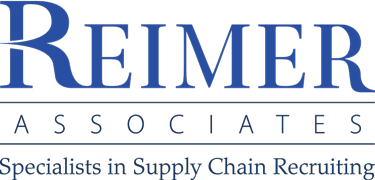The single biggest reason for a misfire during the hiring process is a lack of honesty during the interview. This applies to both parties: the hiring manager and the potential employee. Let’s face it – both parties are actively putting their best foot forward and this seems like the logical thing to do. But it’s actually dangerous territory if that’s as far as the process goes. The interview needs to be an all-encompassing discussion that includes the strengths and weaknesses of the potential employee as well as an open and honest discussion around the company culture and a realistic position description. Full disclosure breeds long-term success.
From the company’s perspective, describing a position without sharing all of the significant pieces – some of which may be less appealing than others – or describing the culture inaccurately can lead to big disappointments early on. It’s a serious mistake to paint your culture as conciliatory and inclusive if in fact most decisions are made from the top with little input from employees. If that’s the way things are it’s far more effective to share this openly and honestly in the interview process, rather than to pretend it’s something else.
From the employee’s perspective, similar dangers lurk below the surface. When looking for a job it’s absolutely tempting to describe oneself as someone who can fill all of the needs spelled out in the job description. This temptation is understandable. However, if significant gaps exist between the actual skills and the required ones, problems are sure to occur early in the relationship.
For my part, when I counsel companies and potential employees around the interview process, I encourage as much down-to-earth honesty as possible. I think an effective interview explores the positives but also spends time on the potential gaps, to see if they are significant enough to preclude a successful relationship. It may seem counterintuitive to some, but I always counsel the candidates we put forward to focus on being themselves in an interview. In other words, don’t play out your strengths too much and don’t avoid talking about weaknesses. This kind of honesty can lead to a much more in-depth and accurate discussion, which will either strengthen the opportunity for both parties, or cause both to see early on that they should seek different options.
One of the best examples of this goes back 10 years in our company history. My task was to find a general manager for a medium-sized owner-operated company where the entrepreneur was looking to significantly reduce his time spent managing day-to-day operations. This is always a challenging prospect, because it can be very difficult for an owner to actually follow through on his plan. It’s one thing to say you will be backing out, and quite another to actually do it. Fortunately in this case, the entrepreneur was fully prepared to talk about his company’s strengths as well as its weaknesses, including his own personal habits, some of which could be frustrating. This openness led to honest conversations during the interviews, so candidates could fully understand the pluses and minuses from the start. Further, this encouraged the same kind of honesty when the final candidate applied for the opportunity.
There’s no question the interview process took longer, with several meetings to explore all of the important issues, but it led to the beginnings of a great relationship and one that worked well, throughout both the good times and the challenges that followed. For me, as someone invested in the process, it’s been rewarding to watch the company continue to grow alongside the relationship between the owner and the general manager, who has now been in the position for 10 years.
As a recruiter, the greatest reward is a successful placement with a valued client. Not just at the three-month mark or the one-year mark, but at the 10-year mark. This can happen only with a foundation of open and honest discussion from the outset. Indeed, discussions that realistically explore all of the issues are a launch pad for future success.
